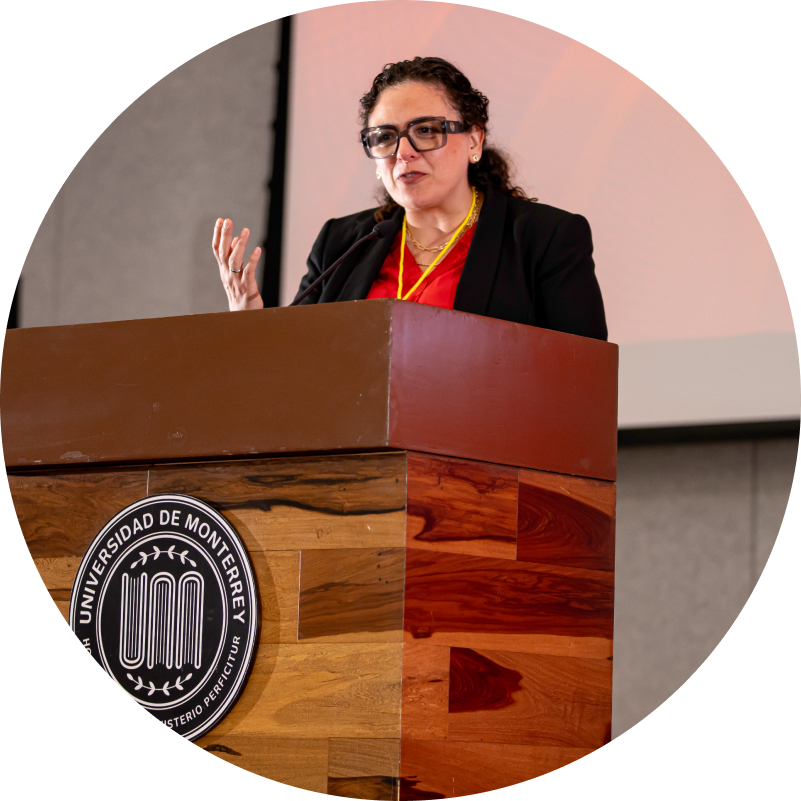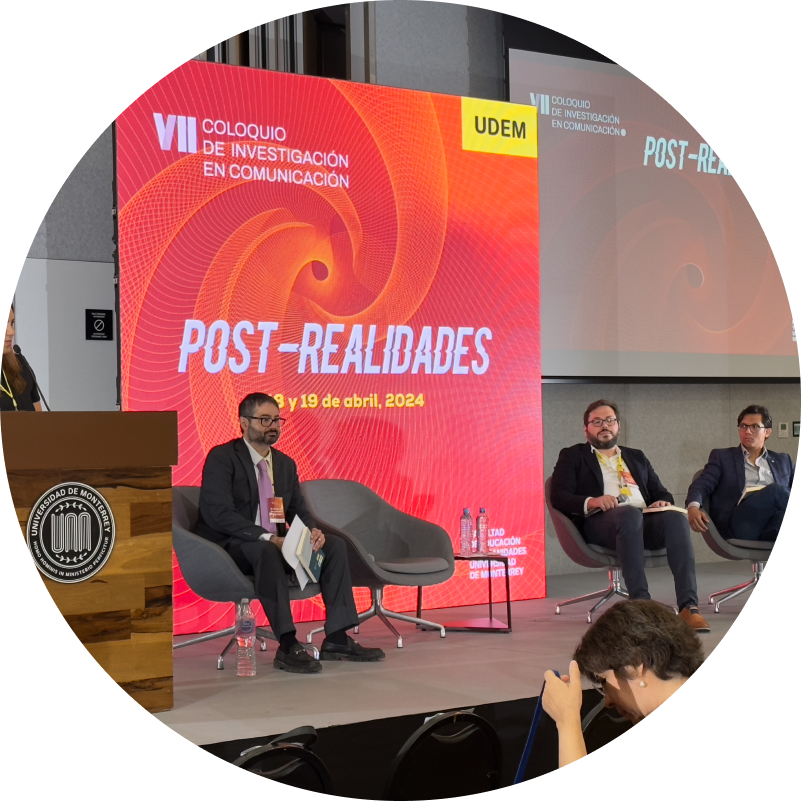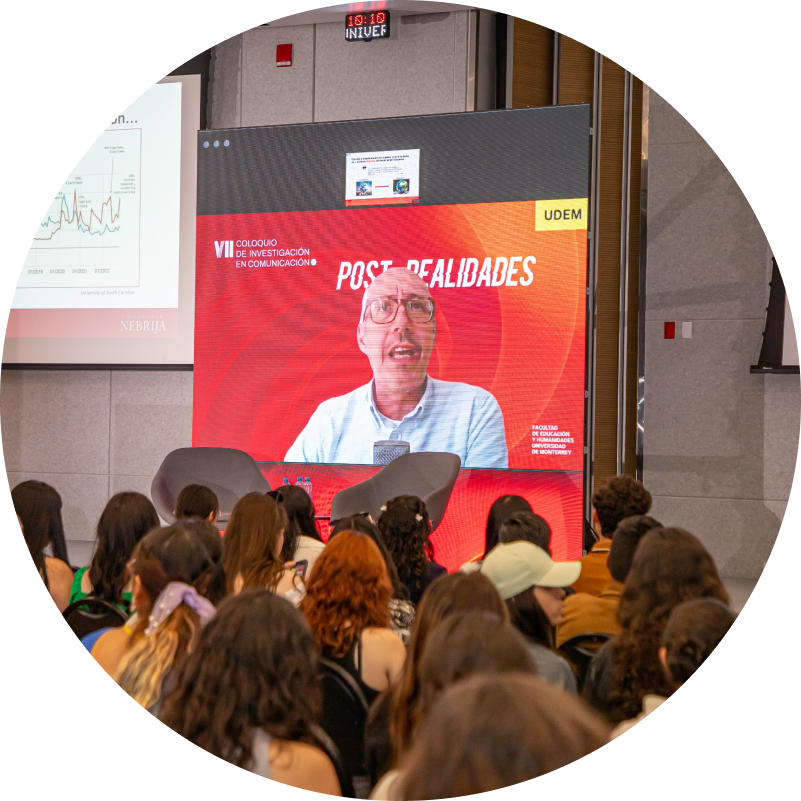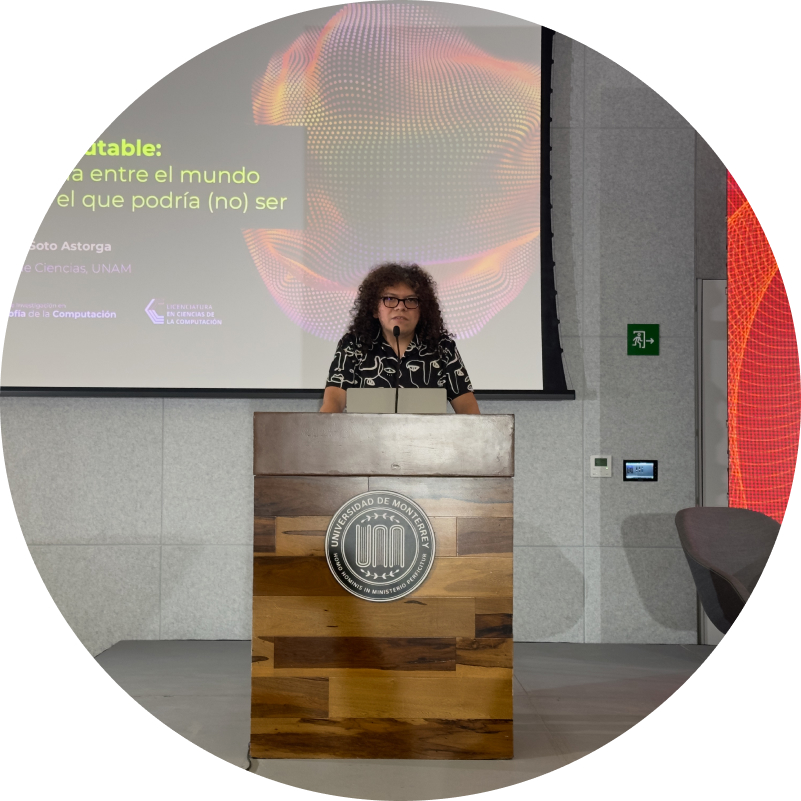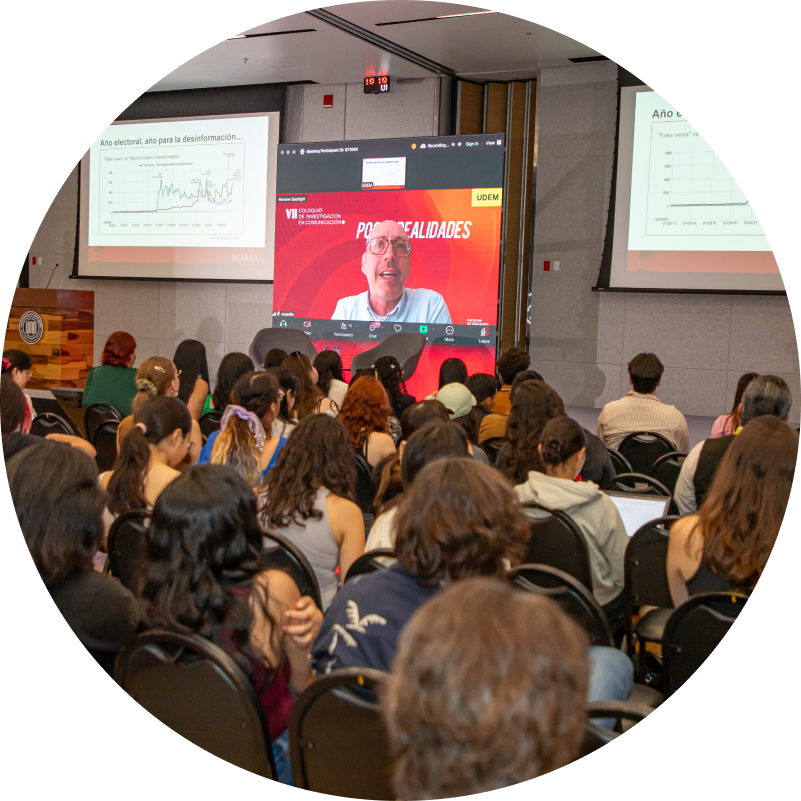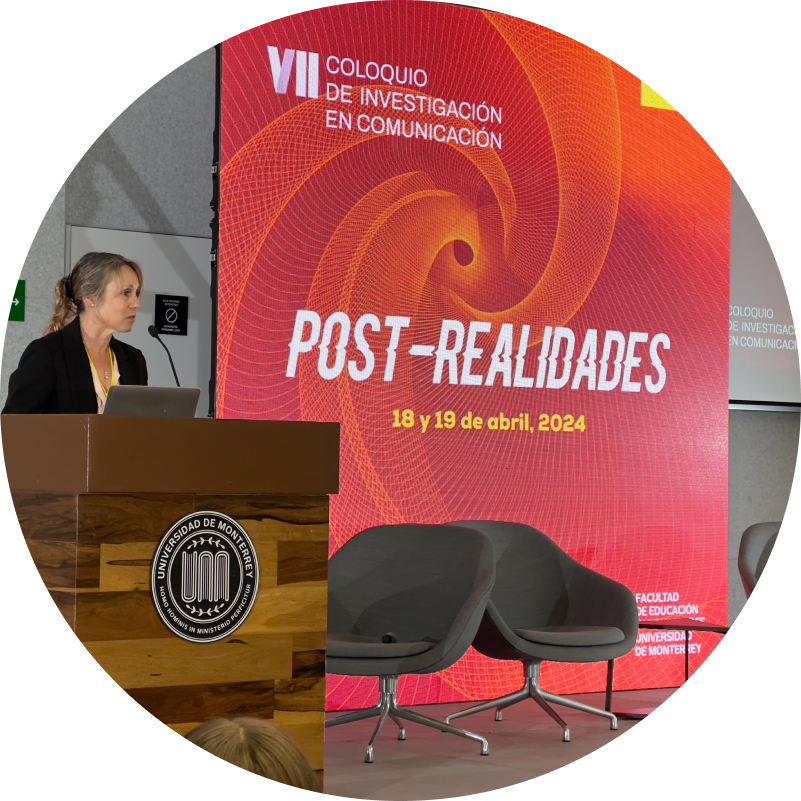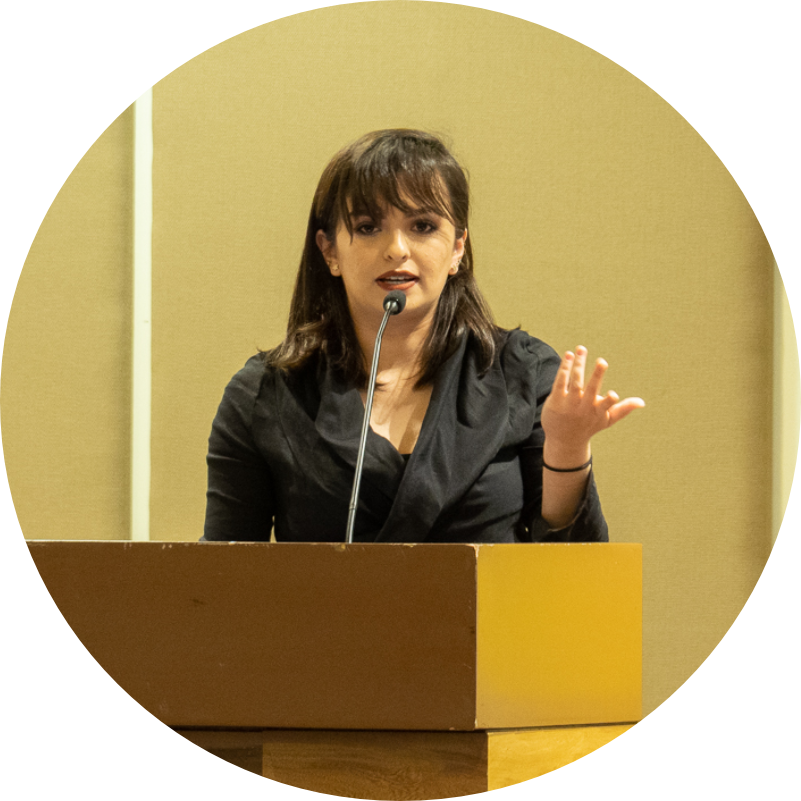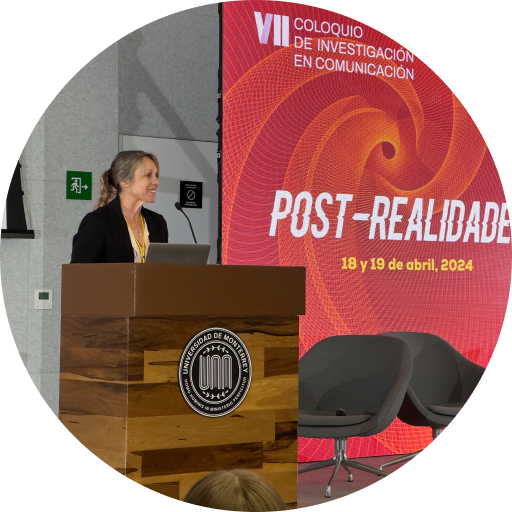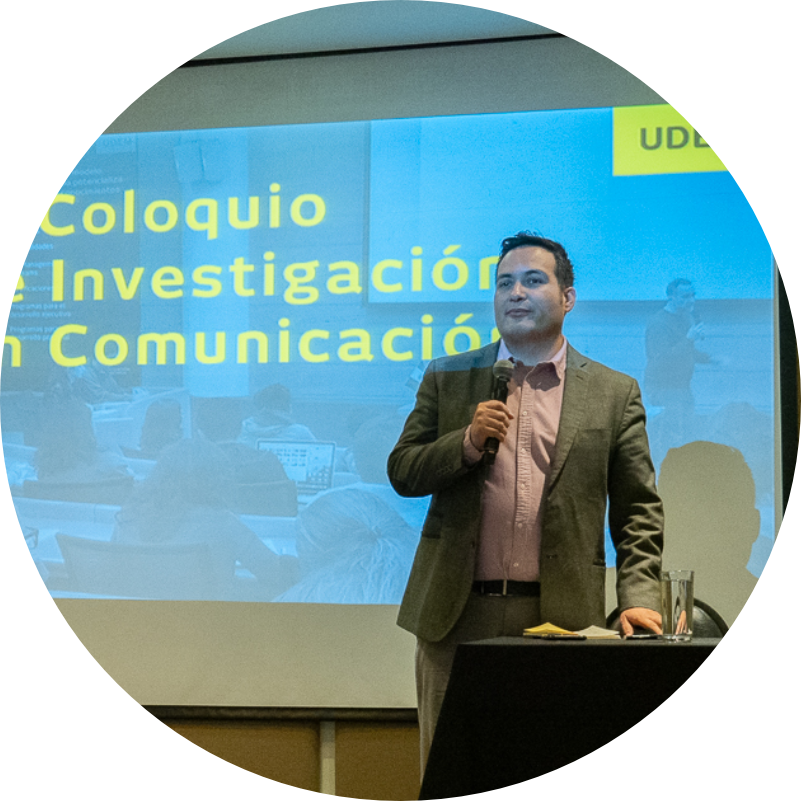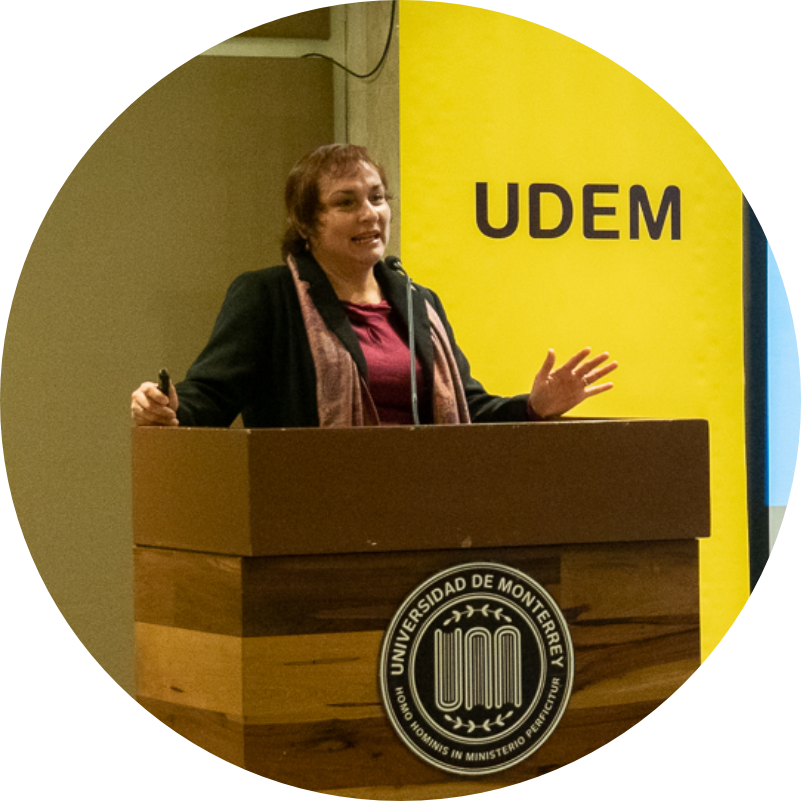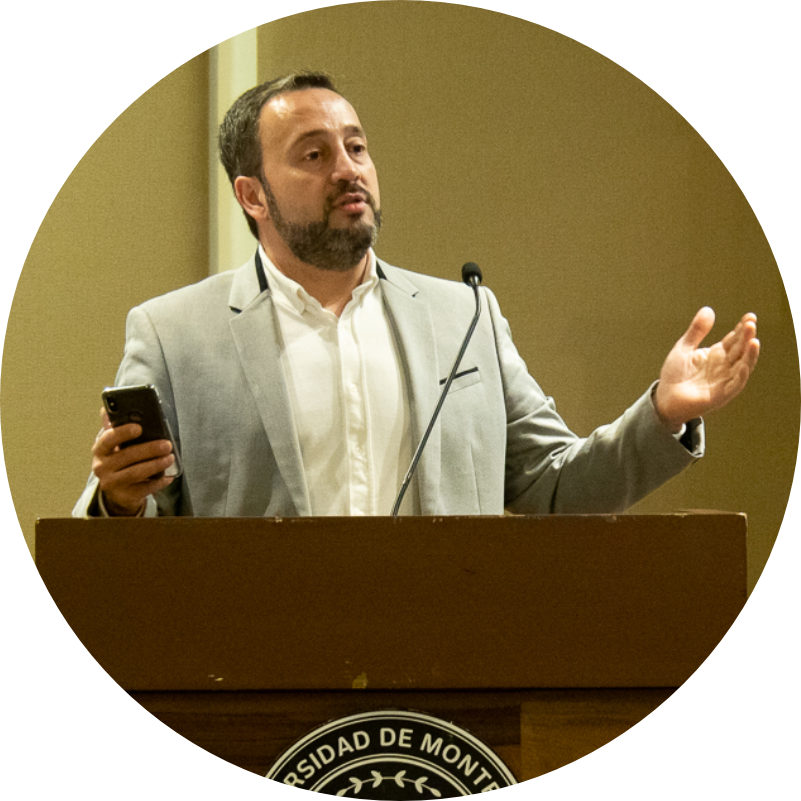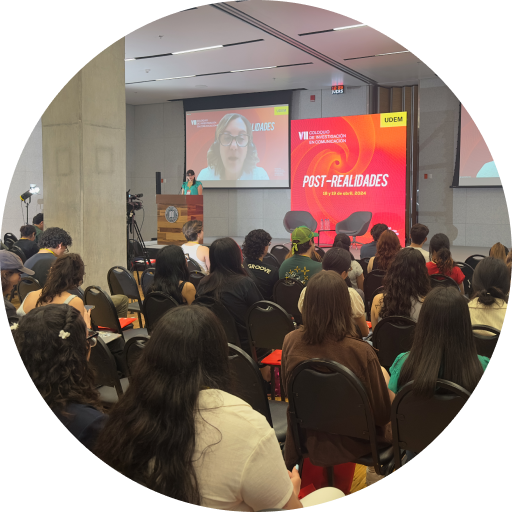International Congress on Communication Research
Department of Film and Communication
Faculty of Education and Humanities
University of Monterrey (UDEM)
International Congress on Communication Research
The International Congress on Communication Research is a diverse, open, and dynamic platform for academic and professional dialogue on scientific research in various areas of communication. It fosters the exchange of ideas and collaboration among experts in the field.
Membranes
The membrane symbolizes the space between the present and the future—permeable, tangible, explicit, and selective, yet not always consciously perceived. It is crucial to reflect on the skills needed to recognize that we are crossing membranes into a new scenario shaped by significant technological changes and developments.
What sensitivity, what intelligence, and what resources do we need to develop to cross these membranes and face the challenges of self-awareness? Who are we as human beings, and what remains inalienable and unique to us in the face of technologies capable of performing previously unimaginable tasks, such as creating, making decisions, or accumulating knowledge and power?
This need for reflection, explored from interdisciplinary and transdisciplinary perspectives, shapes the central theme of the 8th International Congress on Communication Research. The event will not only share knowledge but also foster critical discussions on vital issues to confront the complexities of our time.
Organizing Committee
